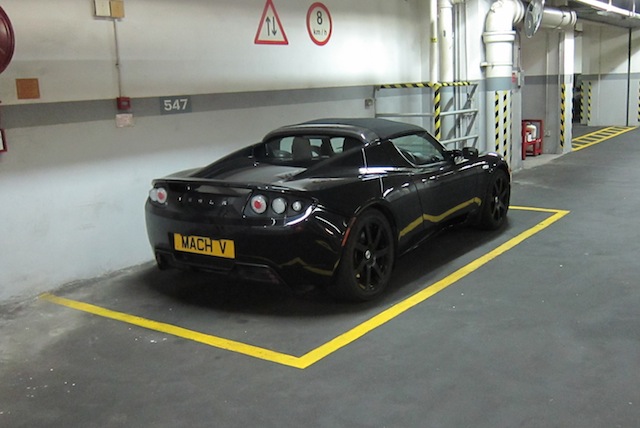Investors look to Hong Kong's absurdly expensive parking spaces


HONG KONG -- Walk into any Hong Kong parking garage, and you will be confronted with rows of luxury cars. Mercedes vehicles are but commonplace. Rolls-Royces? There are more of them here per capita than anywhere in the world. Bentleys barely stand out without an outlandish orange paint job.
Only a small fraction of the Hong Kong population owns private cars, and the 5 percent love their luxury. But don’t overlook the price of the cold, hard ground on which these vehicles are parked.
In the third quarter of this year, the price of previously owned parking spaces rose to an average of US$82,600, according to research by the property agency Centaline. This was the second highest average ever recorded.
The most expensive spot went for US$387,000, Bloomberg reported, as listed on CarparkHK.com, which keeps track of the parking space transactions.
In Hong Kong, every square foot counts — for thousands of U.S. dollars — and parking spaces are no exception. But recent government measures to temper the rise of property prices have made the little plots more appealing.
Property speculators have been snapping up parking spaces so quickly and at such high prices recently that analysts are calling it a bubble.
“The reason for the recent bubble is because of its relatively high yield of 4 to 5 percent, whereas residential homes yield less than 3 percent,” said Joe Chong, an agent at Centaline, one of the largest property agencies in Hong Kong.
In addition to the good returns, new taxes for foreign home buyers that was implemented last month has driven speculators to look at other areas of investment. Parking spaces do not fall under the new tax rule, making them seem a better alternative.
But another reason parking spots are desirable is that in a superexpensive property market, they simply cost less.
“The lump sum for a parking space is usually less than HK$2 million (US$260,000). That would only incur a HK$100 stamp duty, so the total cost is way lower,” Chong said.
It’s all relative.
Hong Kong’s housing market is considered the most expensive in the world, with prices pushed up by the demand of wealthy speculators from mainland China over the past decade.
It has become a crisis, as homes are unaffordable to a large segment of society, where the minimum wage, only established for the first time last year, is US$3.59 per hour, less than half of what it is in the U.S.
New tax rules have been imposed on people who do not hold permanent residency. Foreigners, which includes most mainland Chinese, now have to pay an additional 15 percent tax on the property price. To discourage “flipping” homes, there is a 20 percent duty if a home is sold within six months of it being purchased.
So far, it seems to be working. Sales within the city’s 10 largest estates reached a nine-month low the weekend after the new set of taxes was announced, according to a report by Centaline.
The government has said it would also increase the housing supply by adding 65,000 private residential units over the coming three or four years.
This post was originally published on Smartplanet.com